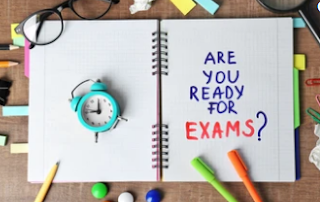Gerund, Infinitives and Participles
Gerunds and Infinitives

A gerund
is the +ing form of a verb e.g., going, talking, understanding
etc.
An infinitive
= to + the simple form of a verb e.g. to talk, to go, to play etc.
1. Playing tennis is my hobby.
(gerund-noun)
2. I
enjoy playing tennis. (gerund)
3. She
is exhausted because she has played tennis.
4. She
is excited about playing tennis. (gerund)
5. Walking is good exercise.
6. Sara
and Nadia are playing tennis. (Verb-present participle)
7. Sara
and Nadia were playing tennis. (present participle)
8. I
heard some surprising news (noun). (adjective-present participle
adjective)
9. I
am breaking a news.
10.
I have a breaking
news.
11.
We walked about going to the park. (gerund)
12.
She is in charge of organizing the meeting.(gerund)
13.
I am used to sleeping with the windows open.
14.
I used to
sleeping/sleep with the windows open.
15.
She is used to studying/study a lot these days.
16.
He was used to driving/drive a lot those days.
17.
We used to play/playing football in school.
18.
We were used to playing/play football in school.
19.
I looked forward to the summer holidays.
(look forward to, be used to, get used to, with a view to)+ gerund
20.
I looked forward to seeing the summer holidays.
21.
I am used to taking tea.
22.
I used to take tea.
23.
If offer prayers regularly, we shall get used to offering five times a day.
24.
Instead of ______ (study), she likes to watch a movie.
25.
I am accustomed to taking/take tea.
26.
My students are capable of writing on the picture.
Write Gerund, Infinitive and Participles.
Instructions: Use the correct form of word.
1. Instead of , she likes (watch) a movie tonight.
2. I enjoy (swim) in the ocean.
3. They are considering (start) a new business.
4. Janet regrets not (take) the job offer.
5. Running a marathon requires a lot of (train).
6. He would love (play) the guitar in his spare time.
7. My parents always encouraged me (pursue) higher education.
8. Sarah is interested in (learn) photography.
9. We are (look) forward to (attend) the concert.
10. The children were excited about (go) to the amusement park.
11. The team celebrated their victory by (cheer) and jumping up and down.
12. I can't stand (wait) in long lines at the grocery store.
13. She is (consider) (adopt) a rescue dog from the local shelter.
14. John (enjoy) (play) soccer with his friends on the weekends.
15. The teacher emphasized the importance of (study) for the exam.
16. They (plan) on (renovate) their kitchen next month.
17. The children used to (fascinate) by (watch) the fireworks display.
18. Sarah apologized for (arrive) late to the (meet).
19. He is passionate about (help) others in need.
20. We appreciate your support in (organize) the charity event.
21. He suggested (go) to the charity show after lunch.
22. They promised (help) us with the compaign of collecting funds.
23. She hops (become) a doctor someday.
24. He avoided We (talk) about the accident.
25. They finished (paint) the their house yesterday.
26. I was (bore) with the lecture.
27. We felt (surprise) by the news.
28. They were (frighten) by the loud noise.
29. We are (interest) in the offer.
30. He looks (tire) after work.


Comments